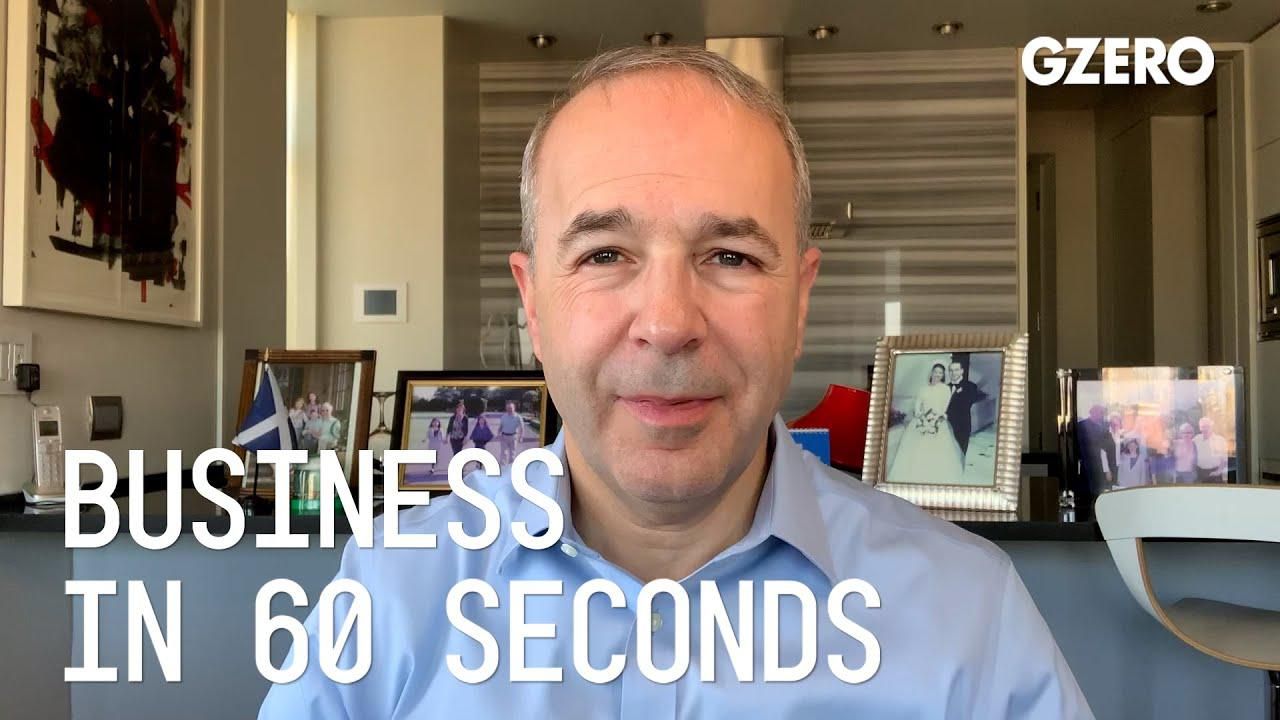In 60 Seconds
The new wave of innovation is cause for business optimism about 2021

The New Wave of Innovation In 2021 Is Cause For Business Optimism | Business In :60 | GZERO Media

Kevin Sneader, Global Managing Partner at McKinsey & Company, provides perspective on what corporate business leaders are thinking during the global coronavirus crisis:
Should businesses be pessimistic or optimistic about 2021?
It's easy to be gloomy about the year ahead when faced with the realities of a cold, bleak winter in much of the world. Add to that lockdowns across Europe, surging case numbers and hospitalizations, and dreadful events in the Capitol in the US to name a few reasons for pessimism. But I think there is a case for optimism when it comes to this year. After all, it's true to say that it's always darkest before the dawn, and my conversations with business leaders suggest there are reasons to be positive by 2021.
Consider the following, yes, the vaccines are on their way, but so too is the impact of a wave of innovation. Twice the number of new business applications in the US and significant increases in new business starts in Germany, France, the UK and Japan. It's not just the digital economy that is reshaping lives, but science more generally with the impending bio revolution. And new ways of working are being accepted. Manufacturing is reviving and many sectors are seeing signs of confidence returning.
The great Anglo-Irish explorer Ernest Shackleton when faced with a life-or-death challenge of survival in the Antarctic commented, "optimism is true moral courage." It's time for some of that courage as we tackle 2021 with optimism.
In this Quick Take, Ian Bremmer addresses the killing of Alex Pretti at a protest in Minneapolis, calling it “a tipping point” in America’s increasingly volatile politics.
Who decides the boundaries for artificial intelligence, and how do governments ensure public trust? Speaking at the 2026 World Economic Forum in Davos, Arancha González Laya, Dean of the Paris School of International Affairs and former Foreign Minister of Spain, emphasized the importance of clear regulations to maintain trust in technology.
Will AI change the balance of power in the world? At the 2026 World Economic Forum in Davos, Ian Bremmer addresses how artificial intelligence could redefine global politics, human behavior, and societal stability.
Ian Bremmer sits down with Finland’s President Alexander Stubb and the IMF’s Kristalina Georgieva on the sidelines of the World Economic Forum to discuss President Trump’s Greenland threats, the state of the global economy, and the future of the transatlantic relationship.